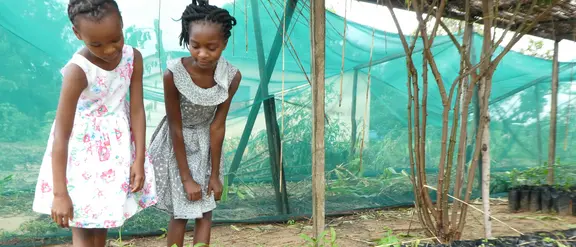Mozambique: Environmental protection on the coast
According to the climate risk index, Mozambique is one of the ten countries that are most affected by the effects of climate change. The long coast and flat land are susceptible to floods and storms. Although the forest and especially the domestic mangrove of the coastal region serve as a livelihood by fishing and agriculture, the ecosystem is destroyed by deforestation and overuse.
One reason lies in the lack of environmental awareness and the lack of political and public debates on environmental protection. Mahlahle (Xitswa: Sunrise) is a local organization that has been committed to promoting and support from women in the province of Inhambane since 1997. In the meantime, the focus of their work is to increase the resilience of the population towards disasters, to strengthen civil society and to ensure equal participation of all social processes. On the practical level, Mahlahle takes care of improving the nutritional situation of families and communities. For example, the use of fuel stoves is conveyed in the current project. In the school gardens, children and adolescents learn the cultivation of vegetables despite difficult environmental conditions and can use this knowledge in their own home.
Environmental protection at school
The local school system grants every state school 20 percent of the classroom to use them for topics that are important on site. This uses Mahlahle to establish better environmental education in schools. The training of teachers, volunteers and community authorities increases environmental awareness and alternatives to the previous procedure is offered. Children and adolescents are involved in environmental clubs and use local radio stations and theater play to inform about environmental concerns. In addition, the construction of trees and the reforestation of mangrove forests counteracts the destruction of the local ecosystem.
The aim is to give the communities knowledge and opportunities with which they can create a sustainable and ecological livelihood. For this purpose, further training in water management and sustainable, ecological cultivation methods are planned. In addition, civil society organizations are to be strengthened and joint petitions for environmental protection are to be developed.
